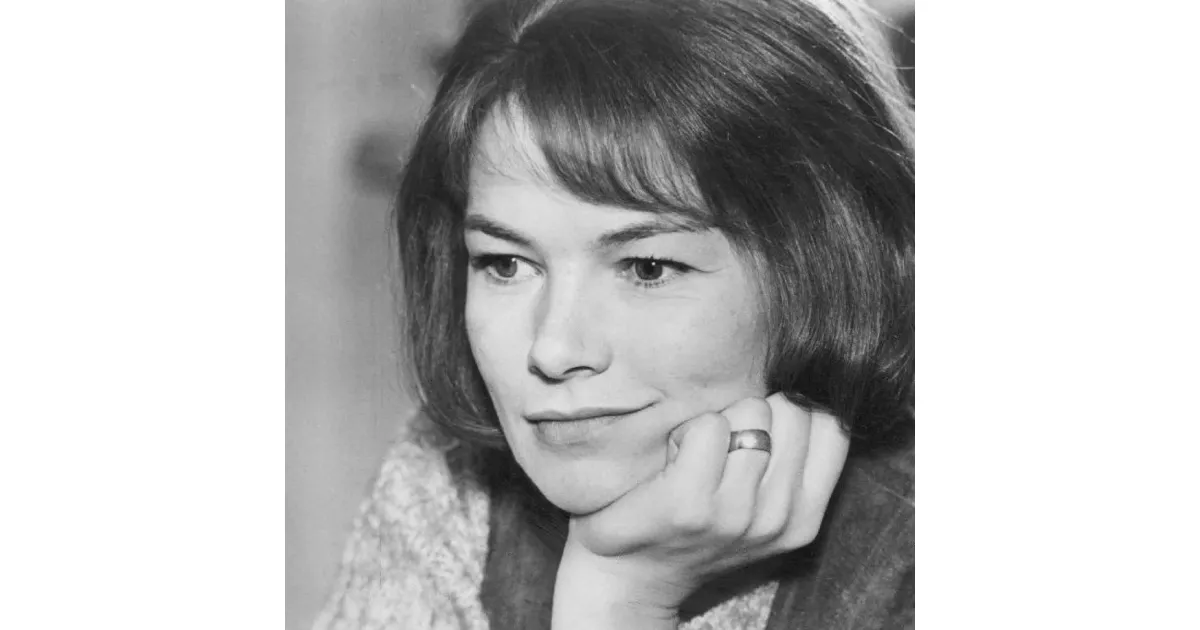An overview of the childhood and early education of Glenda Jackson, highlighting the experiences that shaped the journey.
Glenda Jackson (1936-2023) was a celebrated English actress and Labour Party politician. She achieved EGOT status and earned two Academy Awards, two BAFTA Awards, three Emmy Awards, a Golden Globe Award, and a Tony Award for her acting career. Simultaneously, Jackson served as a Member of Parliament (MP) for 23 years, representing Hampstead and Highgate (1992-2010) and later Hampstead and Kilburn (2010-2015). She balanced her successful acting career with dedicated political service.
1957: Met Roy Hodges
In 1957, Glenda Jackson met Roy Hodges, a stage manager and fellow actor.
August 1958: Marriage to Roy Hodges
On August 2, 1958, Glenda Jackson married Roy Hodges at St Marylebone Register Office in London.
1969: Birth of son Dan
In 1969, Glenda Jackson's son, Dan, was born.
October 1974: Supported Women's Rights candidacy
In October 1974, Glenda Jackson supported Una Kroll's Women's Rights candidacy for Sutton and Cheam in the United Kingdom general election.
1975: Affair with Andy Phillips and divorce filing
In 1975, Glenda Jackson began an affair with Andy Phillips, and Roy Hodges sued Jackson for divorce in November of that year.
1975: Voted against EEC membership
In 1975, Glenda Jackson voted against Britain continuing in the European Economic Community.
1976: Divorce from Roy Hodges
In 1976, Glenda Jackson was divorced from Roy Hodges.
1978: Sponsored Anti-Nazi League and appeared in Oxfam advertisement
In 1978, Glenda Jackson sponsored the Anti-Nazi League and appeared in a print advertisement for Oxfam.
1979: Began a social science degree at the Open University
In 1979, Glenda Jackson began a social science degree at the Open University but dropped out a few months later.
1979: Was approached to stand at the general election
In 1979, Glenda Jackson was approached by a Constituency Labour Party (CLP) in Bristol to stand at the general election, but this did not happen.
1981: End of relationship with Andy Phillips
In 1981, Glenda Jackson's on-off relationship with Andy Phillips ended.
1983: Turned down the chance to be a candidate
In 1983, Glenda Jackson turned down an approach to be a candidate for the marginal Welsh seat of Bridgend to pursue a humanities degree at Thames Polytechnic. She dropped out before starting the course. She supported Paul Boateng and Ian Wilson, Labour's candidates for Hertfordshire West and Watford.
1985: Congratulatory telegram to Neil Kinnock
In 1985, Glenda Jackson sent Neil Kinnock a congratulatory telegram after his Labour Party Conference speech criticizing Militant.
1986: Visited Ethiopia with Oxfam
In 1986, Glenda Jackson visited Ethiopia as part of Oxfam's efforts to help with the famine.
February 1987: Appeared in a party political broadcast for Labour
In February 1987, Glenda Jackson appeared in a party political broadcast for Labour.
September 1988: Chaired a United Nations committee on the cultural boycott
In September 1988, Glenda Jackson chaired a United Nations committee on the cultural boycott.
December 1989: Rumored to be approached by Leeds East CLP
In December 1989, it was rumored that Glenda Jackson had been approached by two branches of Leeds East CLP to succeed their Labour MP, Denis Healey, but she turned down the opportunity.
1989: Approached Voluntary Service Overseas
In 1989, Glenda Jackson approached Voluntary Service Overseas about the chance of working in Africa for a couple of years.
March 1990: Won the ballot for Hampstead and Highgate CLP
On 28 March 1990, Glenda Jackson won the ballot for Hampstead and Highgate CLP, defeating Kate Allen, Sarah Palmer, and Maureen Robinson.
November 1990: Thatcher stepped down as prime minister
In November 1990, Margaret Thatcher stepped down as prime minister and leader of the Conservative Party.
1991: Retired from acting to devote herself to politics
In 1991, Glenda Jackson retired from acting to focus on politics full-time as the prospective parliamentary candidate for Hampstead and Highgate.
1992: Gained the seat for Hampstead and Highgate
In 1992, Glenda Jackson gained the parliamentary seat for Hampstead and Highgate, narrowly beating the Conservative candidate Oliver Letwin. She was sponsored by the train drivers' union, ASLEF.
1992: Voted into Parliament
In July 2022, Glenda Jackson reflected on Parliament not being welcoming to women when she was voted in during the 1992 general election.
1992: Supported John Smith in leadership election
In the 1992 Labour Party leadership election, Glenda Jackson supported the successful candidate, John Smith.
1994: Backed Tony Blair in leadership election
In the 1994 leadership election, Glenda Jackson backed Tony Blair, who won and became prime minister.
July 1996: Became shadow transport minister
In July 1996, Glenda Jackson became shadow transport minister.
1997: Re-elected and appointed junior minister
Following Labour's victory in the 1997 general election, Glenda Jackson was re-elected and appointed as a junior minister in Tony Blair's government, with responsibility for London Regional Transport.
1999: Resigned from her post
In 1999, Glenda Jackson resigned from her post as junior minister in London Regional Transport.
2000: Unsuccessful attempt to be nominated as Labour candidate for mayor of London
In 2000, Glenda Jackson unsuccessfully attempted to be nominated as the Labour candidate for the election of the first mayor of London, coming third behind Frank Dobson and Ken Livingstone.
2001: Re-elected to represent her constituency
In 2001, Glenda Jackson was re-elected to represent her constituency at the general election.
October 2005: Threatened to challenge Blair as a stalking horse candidate
In October 2005, Glenda Jackson threatened to challenge Tony Blair as a stalking horse candidate in a leadership contest.
2008: Supported Gordon Brown as prime minister
In 2008, Glenda Jackson voiced her support for Gordon Brown as prime minister.
2010: Voted for David Miliband in leadership election
In the 2010 Labour Party leadership election, Glenda Jackson voted for David Miliband.
2015: Supported Jeremy Corbyn
Following her departure from Parliament, in 2015 Glenda Jackson stated that she supported Jeremy Corbyn "as a person".
2016: Supported remaining in the European Union
In 2016, Glenda Jackson supported Britain remaining in the European Union in the Brexit referendum, despite having previously voted against EEC membership.
2016: Reported to be 'happily single'
In 2016, it was reported that Glenda Jackson had been "happily single for decades".
July 2020: Happy with Keir Starmer as party leader
In July 2020, Glenda Jackson declared herself happy with Keir Starmer as party leader.
July 2022: Commented on Keir Starmer's voice
In July 2022, Glenda Jackson commented on Keir Starmer, wishing he would develop his voice.
July 2022: British Film Institute celebrated Jackson's film and television career
In July 2022, the British Film Institute held a month-long retrospective season at the BFI Southbank in London to celebrate Glenda Jackson's film and television career. It included screenings of her work and an interview with Jackson.
September 2022: Completed filming on The Great Escaper
In September 2022, Glenda Jackson finished filming on "The Great Escaper". It was to be her last film.
October 2023: Released in The Great Escaper
Glenda Jackson's last film, "The Great Escaper", was released on 6 October 2023.
Mentioned in this timeline

Christmas is an annual festival celebrated on December th commemorating...
Africa is the second-largest and second-most populous continent comprising of...

Los Angeles is the most populous city in California and...
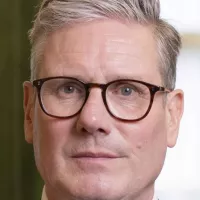
Keir Starmer is a British politician and lawyer currently serving...
Iraq officially the Republic of Iraq is a West Asian...
Virginia officially the Commonwealth of Virginia is a state located...
Trending
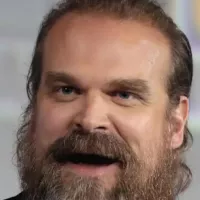
2 months ago Lily Allen Opens Up About Marriage to David Harbour and Personal Struggles.
6 months ago Angola: Call for Electoral Law Improvements and Transparency Assurance by President

2 months ago Colin Jost and Jimmy Kimmel Mock Trump's Nobel Peace Prize Loss
8 days ago Jalen Williams' Impact: Thunder, Warriors Matchups, Dort's Future, Injury Return
Keldon Johnson is an American professional basketball player currently playing for the San Antonio Spurs in the NBA Prior to...
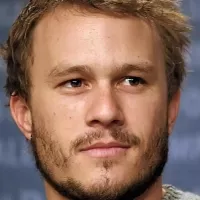
6 months ago Brokeback Mountain's 20th Anniversary: Challenging Hollywood and impacting audiences, starring Heath Ledger.
Popular

Candace Owens is an American conservative political commentator and author...
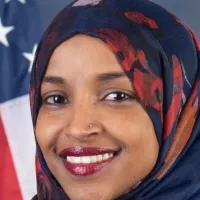
Ilhan Omar is an American politician currently serving as the...

XXXTentacion born Jahseh Dwayne Ricardo Onfroy was a controversial yet...
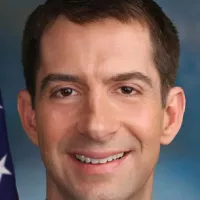
Tom Cotton is an American politician and Army veteran currently...
The Kennedy Center Honors are annual awards recognizing individuals and...
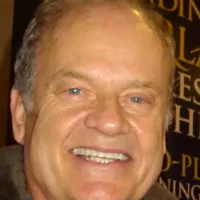
Kelsey Grammer is an accomplished American actor producer and singer...
